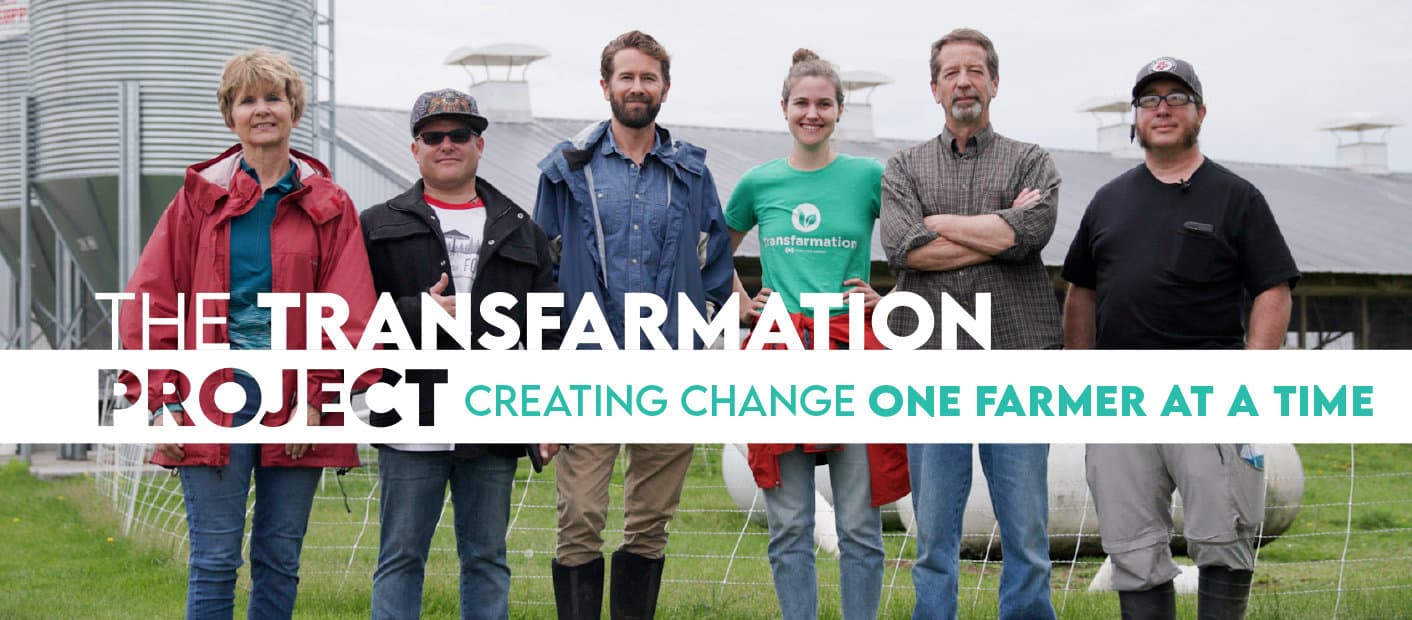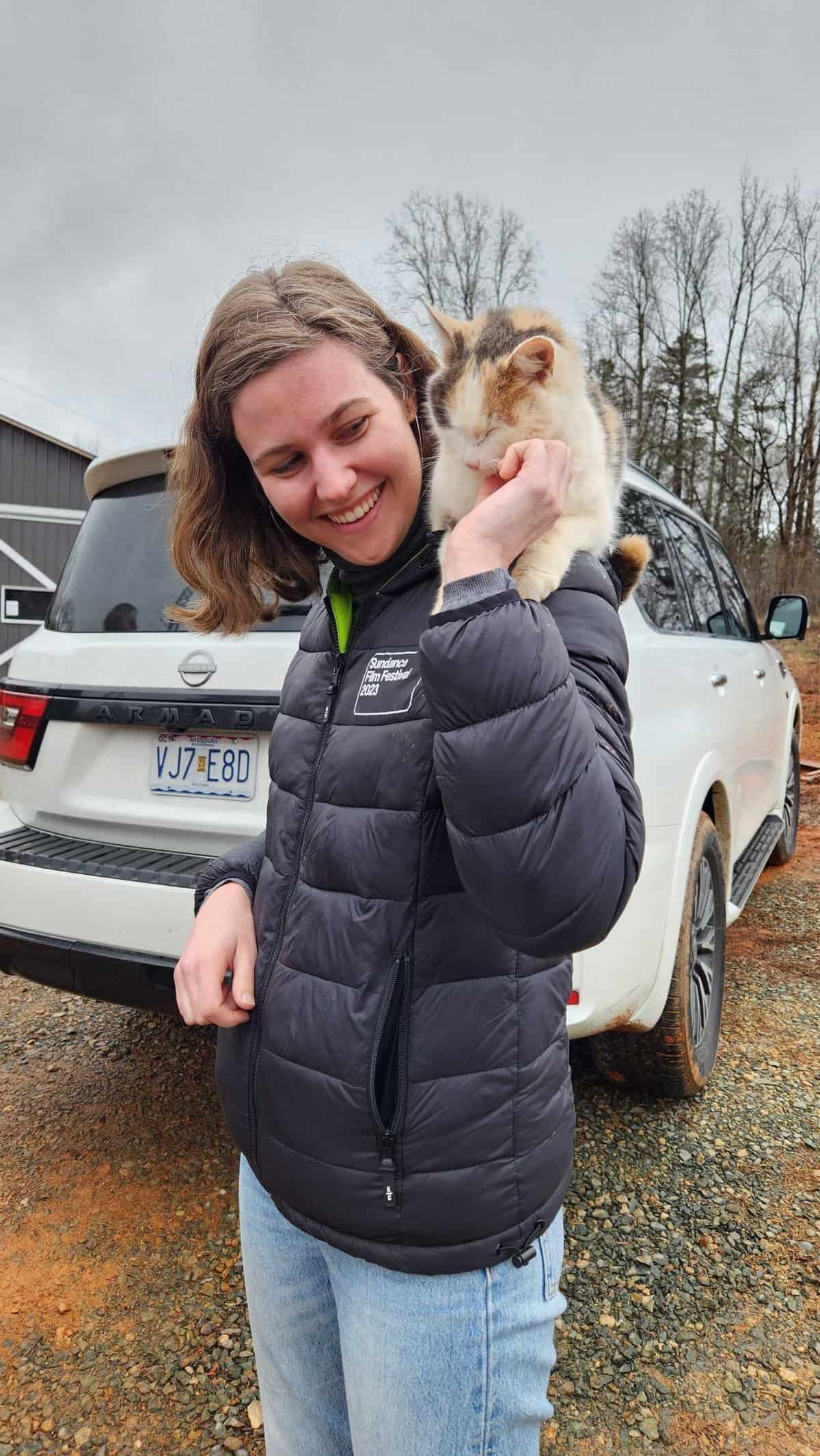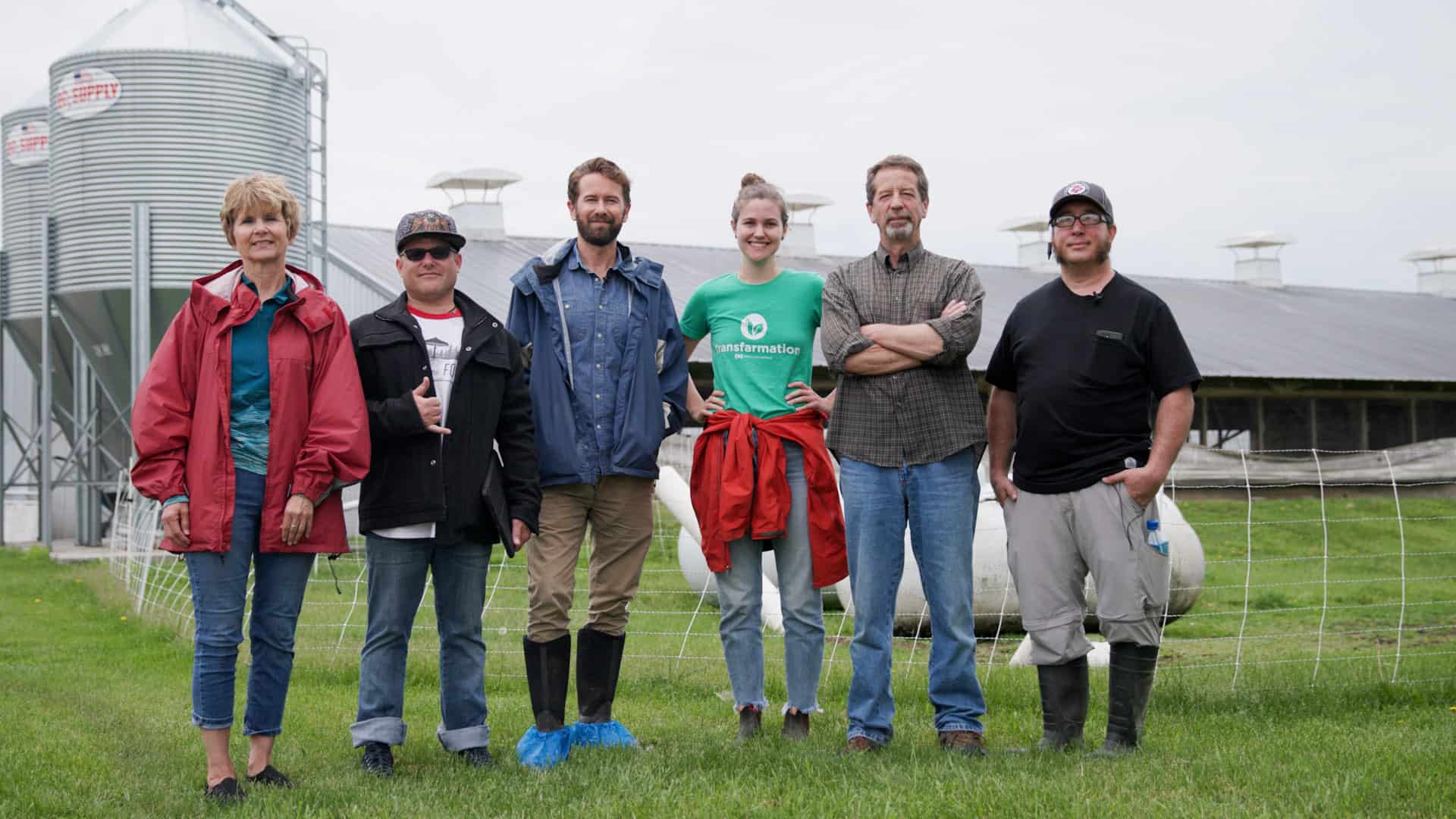
I recently saw the Netflix documentary You Are What You Eat and was amazed how one farmer's life was drastically changed when he had help from the newly created Transfarmation Project. This organization made it possible for him to change the way he farms – and what he farms! This started by leaving a life of farming chickens and evolving that into a mushroom farm. Better on his soul, more humane, and where he also can make a living wage.
Some farmers are making so little money from these contracts with large organizations, working tirelessly to farm animals in this sub-par way, and many of them haven't even gotten a raise since 2000! That's 24 years without a raise while working so hard as a farmer – and while in difficult, challenging conditions that just eat away at the soul and spirit of a farmer.
CAFO's (caged animal feeding operations) are enough to turn anyone's stomach, with the crowded conditions of living animals in filthy, dirty and unbelievably tough environments, with animals living on top of each other and creating so much havoc on each other – and polluting and sometimes even poisoning the living conditions of the farmer and also their neighbors. Take the time to get to know more about these operations adn see what you think about it. I'd love to know your thoughts! Email me: wellness@farmstarliving.com
But enough about my thoughts, and let's get to know Katherine Jernigan, the Farmer Outreach Manager of Transfarmation Project. I spoke with her and found out a little bit more about what this small but mighty organization is up to – and it's changing farmer's lives one at a time!
![]()
Can you provide an overview of the TRANSFARMATION™ PROJECT and its mission?
Transfarmation™ is a farmer-led movement for a better food system. Our mission is to build collective power sufficient to realize a just and sustainable food system. We do this by removing barriers for farmers aiming to transition from factory farming to raising specialty crops. We are creating models of alternative economic opportunities, building solidarity with other movements, and shifting societal narratives to change culture.
What inspired the creation of the Transfarmation™ PROJECT, and what specific goals does it aim to achieve?
Transfarmation™ officially launched in late 2019 as an alternative to the harmful industrial animal agricultural system that relies on contract farmers. After the launch, we began providing resources to farmers looking to switch from raising animals to growing plants, such as assistance to chicken farmers in growing fresh fruits and vegetables and to pig farmers in raising specialty mushrooms. Mercy For Animals’ president, Leah Garcйs, founded the project, having seen firsthand the impacts of contract farming on farmers like Craig Watts and the potential for them to pursue a form of agriculture that is better for farmers, the environment, and animals.
Our goals are to continue demonstrating the possibilities of farm transitions, build solidarity across a broad spectrum of allies working to improve our food system, and shift the false narrative that factory farming is good for rural communities and consumers.
Can you share some examples of the initiatives or programs implemented by the TRANSFARMATION™ PROJECT to support farmers and promote sustainable agriculture?
You can read more about specific farmers and their projects on the Farmers section of our website. One of my favorites is Tom Lim, the farmer at Barn Farm Plant Haven, who entered poultry farming after escaping the Cambodian Genocide and immigrating to the United States. We first worked with him through our research and innovation grant program, connecting him with a local mushroom consultant and supporting him in growing specialty mushrooms in a retrofitted refrigerated shipping trailer. We’re now collaborating with him on an expansion of his plant-growing operations that features Southeast Asian vegetables and specialty herbs that he shares with his community. The Lim farm has gone from housing over 540,000 chickens per year to being a plant haven with blossoming lotus flowers, persimmon trees, lemongrass, and other delectable specialty crops. His is an inspiring story of a family building their dream farm and reconnecting with food and the land.
What sets the Transfarmation™ PROJECT apart from other organizations or initiatives working in the agricultural sector?
I heard recently from a farmer that what sets us apart is the depth of our support for farmers and the way that we show up genuinely and authentically. You’ll find that our staff is deeply passionate about issues facing farmers today, and we are working hard to do the best we can to support farmers. In addition to working one on one with farmers enrolled in our program, we share all our resources publicly through our website and a website we created in collaboration with Animal Outlook called FarmerToolkit.org. One thing I think we do particularly well is collaborating with “unlikely allies,” meaning we will happily work with folks who aren’t 100% aligned with us ideologically. If common ground exists between us and someone else on an issue, we will find it and build on it.
How can all of us help support the TRANSFARMATION™ PROJECT?
The best thing you can do to support us is spread the word about our work, follow us on social media, and let us know if you are interested in advocating with us through our Get Involved page. If you’re interested in our work, I’d recommend reviewing our Get Involved page for educational resources and information about other organizations doing excellent work in the food system. You can also donate to support our work and projects like Tom Lim’s.
The best thing you can do to support farmers is to buy products from them directly (and leave a review!), follow them on social media, and call on your elected officials to support more-sustainable agricultural policies that incentivize responsible practices.
 Can you share the impact and successes for the Transfarmation™ PROJECT so far?
Can you share the impact and successes for the Transfarmation™ PROJECT so far?
Our greatest success is working with 12 active and former industrial animal farmers—eight actively transitioning from animals to plants. We estimate that these efforts will impact 1,822,000 animals each year. We have also distributed $156,324 in research and innovation grants to support farmer projects. Additionally, our team has held over 50 meetings with elected officials, including farmer fly-ins where farmers spoke directly to their representatives and told their stories. Our work has been featured by the New York Times, the Atlantic, Forbes, and other media outlets that have helped us spread the word about contract farming and industrial animal agriculture.
What did you think about your participation in the YOU ARE WHAT YOU EAT documentary series?
We were thrilled that Transfarmation™ and Craig Watts’s story could be featured and reach such a broad audience. We’ve since received numerous inquiries from both farmers and those looking to support our work. We’re always seeking ways to amplify farmer stories and spread the word about Transfarmation™ as an alternative to industrial animal agriculture because many people don’t know the truth about how the system functions and its impacts on the people within it.
Looking ahead, what are the future plans or aspirations for the Transfarmation™ PROJECT?
We are a team of planners and dreamers, and we have big things in store. Keep an eye out, as we’ll soon share more about our first demonstration hub, which will be a place for folks to come and learn exactly what we’re about and see firsthand what a farm transition can look like. We’ll also reopen our research and innovation grant opportunity later this year and continue to add farmers to our cohort. We are actively building a farmer-led movement for a better food system, and momentum is growing—join us!
Is there any other organization that you think others need to support as well? (Paying it forward here!) :)
I recommend that any reader first look for groups that are active in their community or state—so many wonderful small organizations are working on the ground locally, particularly around agriculture.
Other organizations doing great work with farmers include Operation Spring Plant, National Sustainable Agriculture Coalition, Black Urban Growers, Venceremos, Socially Responsible Agriculture Project, Farm Aid, and Animal Outlook (farm transition program).



Comments